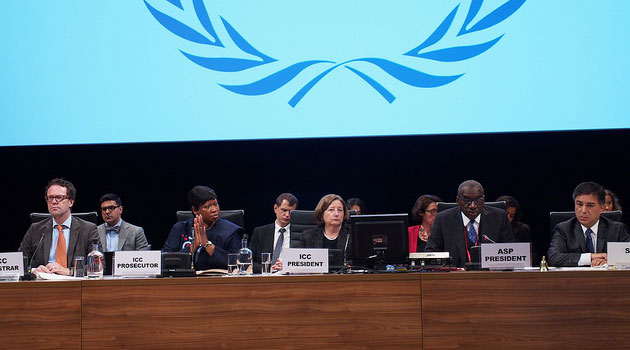NAIROBI, Kenya, Nov 19 – Fresh efforts are being made to salvage the fast fading and poor relationship between the International Criminal Court (ICC) and African member states.
Blame games and counter accusations have become the order of the day between the court of the last resort and Africa which has the highest membership.
Of the 123 member States, 34 African countries – almost one third of the Rome Statute signatories – have signed and ratified the Rome Statute of the ICC.
So far, 23 cases in nine situations have been brought before The Hague-based court; all the situations are in Africa.
The exact point of contention has been the unending question that seems never to get satisfactory answers.
Why is the ICC targeting only Africa?
It is a question that has led to a sour relationship that has seen critics, especially African governments question the ICC’s prosecutorial strategy.
In their view, the prosecution has been selectively targeting African countries.
During the ongoing 14th session of the Assembly of States Parties (ASP), the African Union has again lashed out at the court in what it describes as selective focus on African states.
READ: Africa blasts ICC as world crimes court members meet
African governments have wondered why the ICC has not investigated crimes allegedly committed in Venezuela and by British troops in Iraq.
Some of them have argued that Africa is capable of handling its own situations and have since then advocated for the establishment of an African ‘ICC’ and now wants the court to keep off its issues.
Law experts and civil society groups have defended the court’s strategy explaining that ICC intervenes more in Africa which has more countries prone to violence leading to commission of crimes against humanity.
Concerns have also been raised that violence leading to massive deaths and widespread displacement in some African countries has been a common trend especially during general elections with the latest being the concluded Burundian election.
Africa has also been put on the spot for failing to stop the violence or hold those involved to account.
Due to the thorny debate that is threatening a healthy working relationship between the court and Africa, Wayamo Foundation will launch an Africa-ICC Expert Panel at a side event of the ASP at The Hague on November 23.
Human rights activist and lawyer Femi Falana (Nigeria), International Criminal Tribunal for Rwanda and International Residual Mechanism for Criminal Tribunals Prosecutor, Hassan Bubacar Jallow (Gambia) and Former Chief Prosecutor of the United Nations International Criminal Tribunal for Rwanda and the former Yugoslavia, Richard Goldstone (South Africa) are among the six panellists who will be discussing the status of the relationship between Africa and the ICC.
Others include Botswana Attorney General Athaliah Molokomme, Former UN High Commissioner for Human Rights Navi Pillay (South Africa) and Director of Serour Associates for Inclusion and Equity Fatiha Serour (Algeria).
Following the launch, the panel of experts will hold regular meetings in Africa where it will engage with members of the public, government officers, legal experts, the media and politicians to discuss relationship between Africa and the ICC.
“The project will be tasked with improving our understanding of, and overcoming, contentious issues pertaining to the ICC-Africa relationship. This will be achieved by engaging critically with issues between African constituencies and the ICC, clarifying misperceptions regarding the Court amongst African states, considering policy-relevant recommendations to strengthen and deepen the relationship between the ICC and African states, as well by advising interested parties on strategic issues,” Mark Kersten, Wayamo Foundation Research Director explains.
According to Kersten, African member states are vital in the international criminal justice hence the need to confront issues threatening the system.
“In order to foster a productive and positive relationship between Africa and the ICC, proponents of international criminal justice need to devote time and energy to tackling misperceptions and points of contention between African actors and the Court. The Africa-ICC Expert Panel promises to help fill this lacuna,” Kersten points out.












































